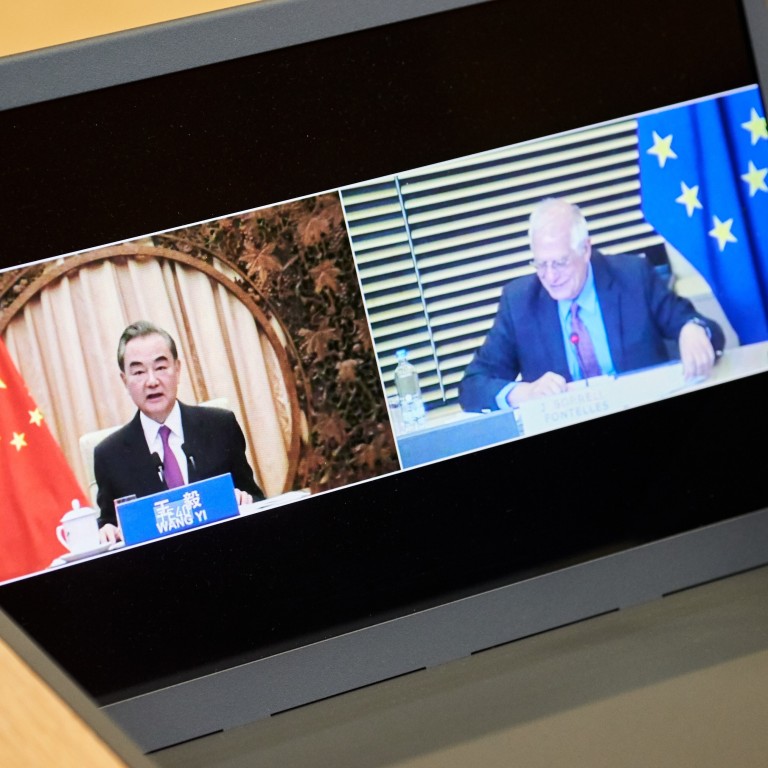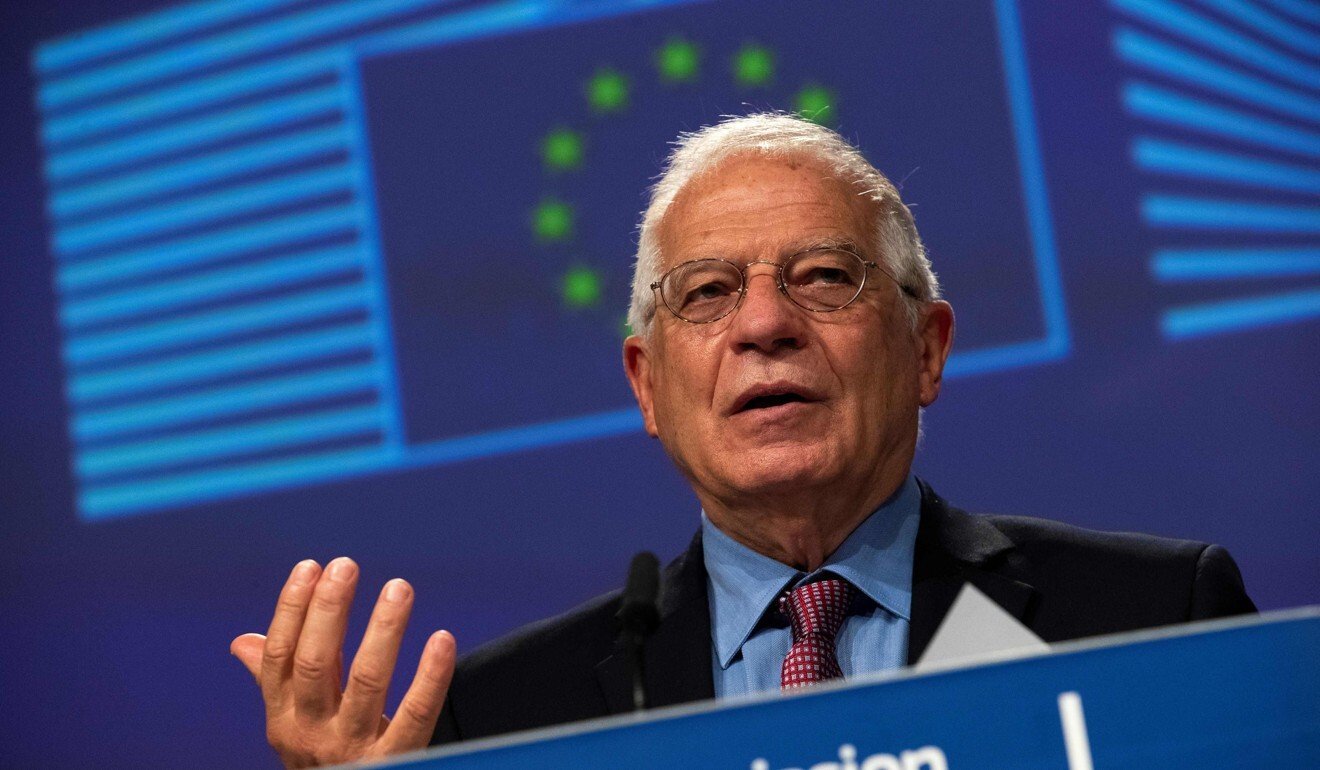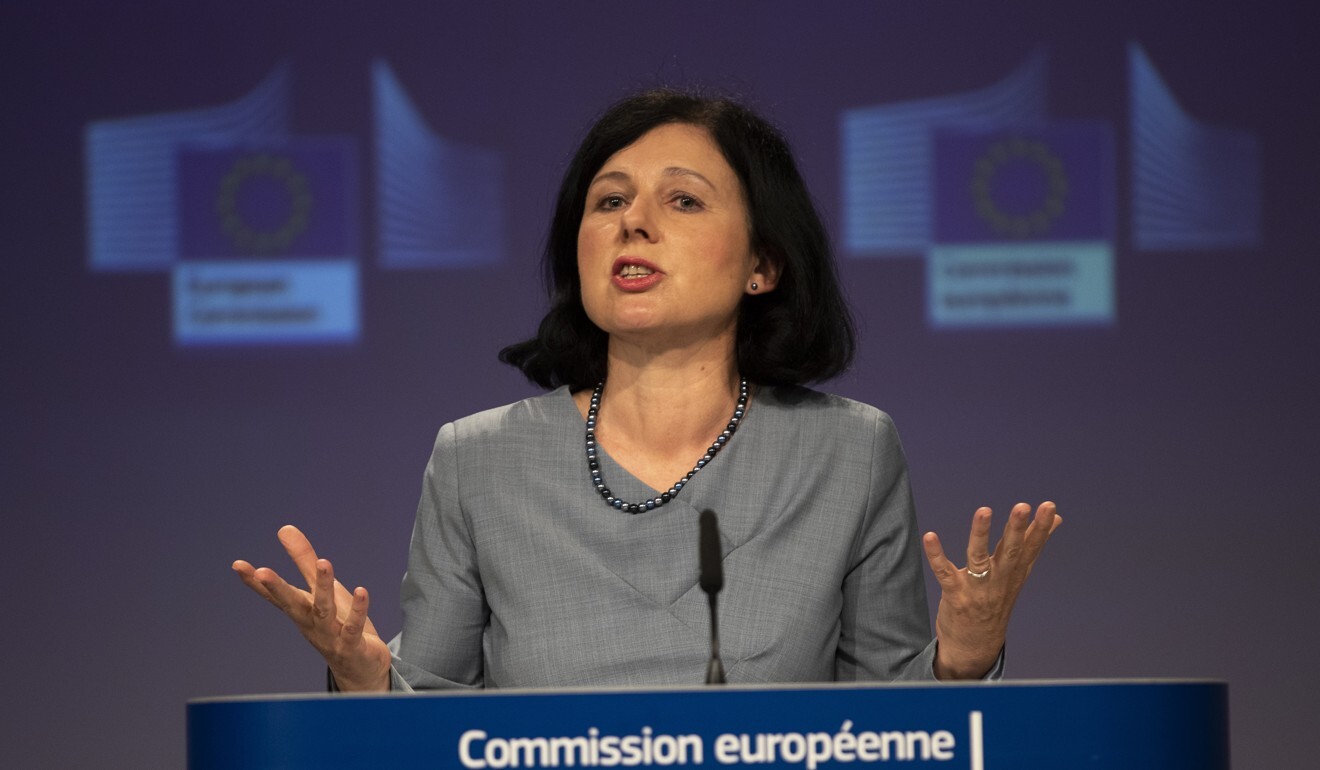
EU calls out Chinese state media for distorting official’s remarks in meeting with foreign minister Wang Yi
- ‘The Chinese press release gives a selective and unbalanced account of the discussions,’ the EU’s foreign affairs spokeswoman says
- The EU also announces plans to crack down on disinformation campaigns it has seen over the coronavirus pandemic
The European Union has warned Chinese state media to stop what it called “selective” and “unacceptable” reporting of remarks its top diplomat made during a video meeting with Chinese Foreign Minister Wang Yi this week.
The warning came on Wednesday as the EU introduced new plans to crack down on disinformation campaigns from state-backed actors including Russian and Chinese online sources, which have proliferated during the coronavirus outbreak.
The latest flashpoint concerned Wang’s strategic dialogue on Tuesday with Josep Borrell, the EU high representative for foreign affairs and security policy.
“The Chinese press release gives a selective and unbalanced account of the discussions,” the EU’s foreign affairs spokeswoman Virginie Battu-Henriksson told the South China Morning Post.
“We have made it known to our Chinese counterparts that this incident is unacceptable and that we expect China to present its own positions while the EU presents its own,” she added.

At issue was a release from China’s foreign affairs ministry, issued after the three-hour meeting, in which Borrell was quoted as saying that the EU “seeks to have dialogue and cooperation with China on the basis of mutual respect, not rivalry or confrontation”.
An EU source, speaking on condition of anonymity, said this was not in line with Borrell’s explanation of “systemic rivalry” – the EU’s official position on China – during the summit with Wang.
Borrell was also reported as saying that the two have a shared commitment to global challenges.
EU vows to work ‘constructively’ with China, calls on Beijing to ‘de-escalate’ in Hong Kong
A report on Xinhua, China’s state media, quoted Borrell as saying the EU “has high expectations for its relations with China and will make efforts to ensure closer ties” and that the EU “welcomes China’s active participation in international cooperation”.
The EU was displeased with the Chinese media portrayal that the bloc was no longer discussing systemic rivalry with China – a policy laid out last year. During the Tuesday news conference after the video meeting with Wang, Borrell said he had reviewed in great detail what systemic rivalry meant.
“The word 'rival' is important in diplomatic language, because it is not a soft word,” he told reporters. “I can tell you that we have talked a lot about what it means to be a 'systemic rival'."
EU officials were also put off when Chinese state media suggested that Borrell held the same view of multilateralism as China, when the EU considers it necessary to reform the World Trade Organisation and for China to commit to further economic reforms, including greater access to its market.
It is not the first time Chinese state-run media outlets have been accused of twisting European officials’ remarks with Wang in recent weeks.
Last month, the French government took issue with a Chinese state media report that quoted Emmanuel Bonne – foreign policy adviser to President Emmanuel Macron – as telling Wang that France would not “interfere” with Hong Kong affairs. The report, France said, was “not true”.

Chinese state media generally report what foreign officials say during meetings or telephone calls with Chinese officials. Parts critical of China are usually not mentioned.
On Wednesday, the EU announced a raft of measures to counter disinformation about the coronavirus pandemic it said originated from China and Russia.
Xi Jinping is phoning EU friends – but delicate conversations loom
Vera Jourova, a European Commission vice-president, said in a news conference: “What we also witnessed is a surge in narratives undermining our democracies and in effect our response to the crisis.
“For example, the claim there are secret US biological laboratories on former Soviet republics has been spread by both pro-Kremlin outlets as well as Chinese officials and state media.”
According to Borrell, the EU’s anti-disinformation campaign should not be interpreted as an action against China.
“We have already been working on disinformation for a long time,” he said. “We started five years ago; in recent years disinformation also covers sources from China – but it is not against China, and much less [having] any kind of cold war with China.”

